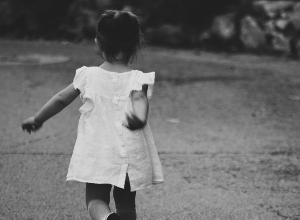Blanka talks about her battle with depression and about raising awareness for mental health issues.
Published Aug 23, 2023 • By Lizzi Bollinger
Blanka has a deep passion for mental health and neurodiversity-related advocacy. During the pandemic she opened an Etsy shop and sells items to bring awareness to mental health. In this interview, she talks to Carenity about her diagnosis with depression and general anxiety disorder and how she uses therapy and outdoor activities to manage her condition.
Keep reading to learn more about how Blanka’s keeps her depression at bay.

Hi Blanka,
Thank you for agreeing to tell your story to the Carenity audience.
First of all, could you tell us more about yourself?
Thank you for giving me the opportunity to share my journey! I’m 28, born in Hungary but living in South East England with my partner, 2 dogs, 7 fish and a hamster. If you can’t tell already, animals are my special interest, I thoroughly enjoy spending time with and looking after pets and if I could, I’d have more. I also have hundreds of hobbies really, I like to keep busy and always be doing something. A few of my favourite activities are crafting, going on walks whilst listening to music, browsing charity shops and trying out coffee shops to find the best oat latte. I’ve recently been wanting to get a piano though, so maybe if you ask me again in a month’s time that will be on the list too! As for work, I’m in Communications and Marketing in the health industry. I’m also a qualified Mental Health First Aider, volunteering here and there as I have a deep passion and interest in anything mental health and neurodiversity-related.
How and when were you diagnosed with anxiety and depression? What prompted you to seek help?
I was officially diagnosed 5 years ago with clinical depression and generalised anxiety disorder by my GP, however unfortunately it took some time to get to that point and find someone who took my symptoms and concerns seriously. It was really challenging and mentally exhausting, being told it’s “just stress” or “hormones”, amongst many other things.
In terms of seeking help, I’ve always had mental health issues so these feelings weren’t particularly new to me, but I hit rock bottom after graduating from my Masters. All of a sudden there was this massive “what now?”, everyone around me seemed to have some sort of plan after uni and then there was me, with absolutely no idea what to do with my life, but enormous pressure to just have it all figured out. I landed a great job straight after graduating, but I had to quit because of my mental health. That’s when I knew I needed professional help. I don’t think we talk about post-graduate blues, depression or anxiety enough and I really wish there was more awareness and support out there.
What treatment plan were you offered? What medications have you tried and how effective do you find them?
Over the years I’ve tried lots of things and for me personally it was a lot of trial and error; still is to this day. I know everyone is different and taking medication is down to personal preference, at the time, anti-depressants saved my life and I’m always honest about this. They helped me stabilise my mood and take the bad thoughts away. After 2 years of taking them I experienced some unpleasant side effects, including sleeping issues and low libido, so I decided to come off them with the supervision of my doctor and take a more active approach in bettering my mental health through therapy and lifestyle changes. I’ve been to therapy 4 times now, each time a different type and with a different health professional; and there’s no shame about that. The one thing I found truly helpful for my anxiety is something called ‘exposure therapy’, which is a form of cognitive behavioural therapy, where you gradually work on being able to confront your fears or anxieties. After 8 months, I was able to go on a plane again, which has always been one of my biggest triggers!
What helps you manage your depression?
Whilst seeking professional help was useful in getting somewhat back “on track”, I wish I knew there was so much learning and healing you have to do yourself to manage the condition or recover on the long run. Personally, educating myself on all things mental health and psychology has been super useful - I’ve learnt so much from reading books, research papers or other people’s experiences…possibly even more than from health professionals! In terms of more practical coping mechanisms, I like to keep busy so I prevent myself from being stuck in my head. I try to do one thing for myself every every week, no matter how small - I learnt this from my therapist. This might be getting a yummy coffee, drawing or just watching my favourite show. Then I always have something to look forward to and that helps getting through the work day and week.
Lifestyle changes have also helped. I noticed whenever I move my body, even if it’s just for a dog walk, my mood is better. I don’t always have the energy or motivation to do it if I’m honest though, but I try to be kind to myself about it. Gardening, looking after animals and less time on social media have been really great, too.
In terms of diet, I found it helpful to take omega 3 for cognitive thinking and brain fog, and CBD for sleeping difficulties and racing thoughts; always consult your doctor or healthcare professional beforehand though, especially if you’re on medication. This is just my personal experience.
How do your health issues impact your everyday life?
I would be lying if I said it wasn’t challenging. Just like everyone, I have good days and bad days. A particular symptom I find hard to live with is sleeping difficulties, especially during the work week, when I experience anxiety and racing thoughts the most. Sometimes I struggle to fall asleep or wake up during the night, which makes me really tired during daytime!
I also experience mood swings and low mood quite frequently, however over the years, I’ve learnt to keep these at bay. Listening to my favourite music and going for a walk whenever I feel an anxiety attack coming is a good way for me to cope. I also let myself just sit and cry it out now. I used to suppress all emotions and thoughts, but figured that acknowledging and letting myself ‘feel my feelings’ was a much healthier way for me to calm down.
In the past I used to want to spend all my time at home because I didn’t feel like I could face the world, which then only made me feel even more isolated and lonely…it really was a vicious cycle! I still spend quite a lot of time indoors these days, but because I choose to, and I think that’s a massive difference.
You have an Etsy shop where you design and sell things like planners, prints, and pins. Can you tell us more about the business: when did you start it, what has been the response, etc.
Thank you for the question! I make all kinds of stuff, all around mental health and neurodiversity. I started during the pandemic, just like a lot of other creatives, because I lost my job and being indoors 24/7 really impacted my mental health. Initially I just needed an outlet to let some steam off…little did I know people would actually relate, let alone be interested! I remember hitting ‘send’ on my first post on social media, doubting it all, because I thought to myself ‘there’s no way others around me feel like this too, otherwise they would’ve said something’. I was wrong! I started creating more content around mental health and there were so many strangers messaging me saying they’re going through something similar. The response made me feel so much better in myself, but it was (and still is), heartbreaking to see how many of us struggle and don’t have any support around. This whole thing taught me that you don’t have to be an expert or the most qualified, experienced person in the room to start raising awareness and making a difference.
What would be your advice to other people suffering with depression and/or anxiety?
Two things. Firstly, this is going to sound cliché, but when you’re fighting your brain day in and day out, it really is okay to take life step by step, appreciate the smallest things and celebrate the smallest achievements. Getting better and recovery isn’t linear and it takes time. Secondly, there is absolutely no shame in asking for help. We all have our own busy lives and difficulties and the last thing we want to do is bothering others with our problems, I know, but sometimes a tiny thing like grabbing a coffee and having an honest conversation with someone you trust can make a huge difference. Seeking professional help isn’t something to be ashamed of either, if you were physically ill, you’d see a doctor too. Mental pain isn’t less valid than physical pain, just because often times we can’t see it.
Connect with Blanka: Etsy shop, Instagram
A big thank you to Blanka for this interview!
Did you find this story helpful?
Click Like and share your thoughts and questions with the community in the comments below!
Take care of yourself!
Comments
You will also like

Bipolar Disorder: understanding the causes, diagnosis and getting the right treatment
Jan 21, 2020 • 10 comments

No One Knows What Being Diagnosed with Multiple Sclerosis Is Like, So Maintain A Can-Do Attitude
Aug 17, 2018 • 12 comments

 Facebook
Facebook Twitter
Twitter
